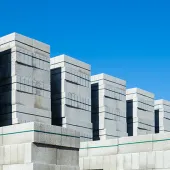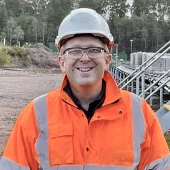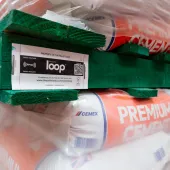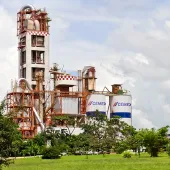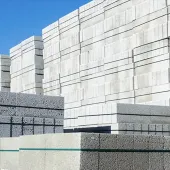Competition Commission to create new cement producer

Final report opens way for fifth producer in order to increase competition in GB cement market
IN its final report into the market for aggregates, cement and ready-mixed concrete, the Competition Commission (CC) says Lafarge Tarmac will be required to sell either Cauldon or Tunstead cement plant, as well as some accompanying ready-mixed concrete plants if necessary, in order to facilitate the entry of a new cement producer.
The CC is also planning to introduce measures to limit the flow of information and data concerning cement production and price announcements, as well as looking to increase competition in the supply chain for ground granulated blast-furnace slag (ggbs) by requiring Hanson to sell one of their ggbs production facilities.
The measures announced yesterday follow a two-year investigation which has found that both structure and conduct in the cement sector restrict competition by aiding co-ordination between the three largest producers (Lafarge Tarmac, CEMEX and Hanson), resulting in higher prices for all cement users. According to the CC, these three producers have refrained from competing vigorously with each other by focusing on maintaining market stability and their respective shares.
The CC has also identified competition problems resulting from there being only one domestic producer of ggbs in Great Britain (Hanson) with exclusive rights to use the output of Lafarge Tarmac, the single domestic producer of granulated blast-furnace slag (gbs) – the main raw material input into ggbs.
The CC estimates that higher prices resulting from this lack of competition cost customers at least £30 million a year for cement and a further £15–20 million a year for ggbs. It also believes that without intervention this situation would persist for many years to come.
The CC has not identified any problems with the markets for aggregates or ready-mixed concrete.
The final report follows the publication of the CC’s provisional findings in May last year and an Addendum to the provisional findings and its provisional decision on remedies in October.
Professor Martin Cave (pictured), the CC’s deputy chairman and chairman of the Inquiry Group, said: ‘We believe that the entry of a new, independent cement producer is the only way to disturb the established structure and behaviour in this market which has persisted for a number of years and led to higher prices for customers.
‘Despite falling demand and increasing costs during the last few years, profitability among GB producers has been sustained and their respective markets shares have changed little. This is not what you would expect to see in a well-functioning market under these circumstances.
‘The problem in relation to ggbs stems from there being only one domestic producer, which again leads to higher prices for customers.
‘Cement is an essential product for the construction and building sectors and the amount of such work that is funded by the public purse only underlines the importance of ensuring that customers get better value for money. We believe our measures can bring about a substantial, swift and lasting increase in competition in this economically vital market.’
Summary of the CC’s remedies:
- Lafarge Tarmac will be required to choose between divesting either Cauldon or Tunstead cement plant. The purchaser of the divested plant will be able to acquire a limited number of ready-mixed concrete plants from Lafarge Tarmac, subject to the purchaser’s total internal cementitious requirement being capped at 15% of the acquired cement production capacity. The buyer will have to be approved by the CC and cannot be one of GB’s existing cement producers.
- Restrictions on the publication of GB cement market data. Publication of data on cement production will be required to be delayed by at least three months from the time period to which it refers.
- GB cement suppliers will be prohibited from sending generic price announcement letters to their customers. Instead, any future price announcement letters will have to be specific and relevant to the customers receiving them.
- Hanson will be required to divest one of their ggbs production facilities and Lafarge Tarmac will be required to enter into a long-term agreement to supply gbs to the acquirer of the ggbs production facility. The buyer will have to be approved by the CC and cannot be a GB cement producer.



